‘Backstage Leadership: The Invisible Perform of Remarkably Powerful Leaders’, by Charles Galunic
The late organisational theorist James March, who transpired to instruct Charles Galunic at Stanford, applied to say that management was a delicate combination of “poetry and plumbing”.
Galunic’s guide does not neglect the poetry. He writes perfectly about the accountability of leaders to set persuasive visions for their teams and market them though in the glare of the public spotlight. But his emphasis is on the prosaic plumbing and electrics. The “creating, protecting and integrating” of fundamental procedures these types of as producing talent, crafting society, handling contradictions — “are the important, albeit backstage, often invisible, operate of small business leaders”.
This is not a guide about how to tackle the unique issues of running out of a pandemic or by means of a economic downturn — it was composed prior to lockdown. There is, nevertheless, plenty here to aid really hard-pressed leaders in a disaster, richly illustrated with illustrations from small business, sport and modern society.
For instance, Galunic implies “scanning and sensemaking” — the procedure of capturing signals and interpreting them — are vital approaches to uncertainty. He also revisits yet another Marchian plan about running the contradiction among “exploration” (like innovation and creation) and “exploitation” (the unlimited lookup for more performance in current spots of small business). The target? An “ambidextrous” management style that balances “conflicting and frequently paradoxical forces”.
‘Winning Now, Successful Afterwards: How Organizations Can Earn in the Brief Phrase Though Investing in the Prolonged Term’, by David Cote
When David Cote grew to become chief govt of Honeywell of the US in 2002, he took over from Larry Bossidy, a rough-nut manager, who had composed a small business bestseller known as Execution: The Self-discipline of Receiving Factors Carried out. It is a surprise, then, to uncover from his excellent and comprehensive account of how to run an industrial small business that the organization Cote inherited “needed to execute better”. Driving the “facade” was “a practice wreck . . . on the verge of failure”.
As for acquiring issues accomplished, “just get it done” was what the finance division explained to the small business divisions when they were having difficulties to make demanding quarterly targets. It led to “untrammelled limited-termism and a compromised strategic setting up process”.
One particular lesson may perhaps be not to read guides composed by ostensibly effective chief executives, but Cote’s could be the exception that proves that rule.
It consists of its share of self-congratulation and relatively far too several nods to previous colleagues. On the other hand, Honeywell had greater in value from $20bn to $120bn by the time Cote remaining in 2018, so he has gained the appropriate to boast a minor. Successful Now, Successful Afterwards is also rescued by just sufficient emphasis on problems manufactured and lessons learnt, and a large dose of highly sensible information on management, like how to experience out a economic downturn.
Earlier mentioned all, Cote underlines how to attempt to meet the central small business problem of investing for the long term and however attaining limited-expression benefits, “accomplishing two seemingly conflicting issues at the exact time”.
‘Future-Evidence Your Business’, by Tom Cheesewright
Even prior to the world pandemic, businesses were working in a environment of continual change and disruption. Tom Cheesewright writes that these disrupting trends can final over yrs, though there are other a lot quicker waves of change layered over these, enabled by globalisation and technological know-how.
In this article the applied futurist draws on his working experience of encouraging organisations to answer to innovation to offer a survival handbook for running a effective small business in an ever more complicated landscape.
Aimed at businesses leaders, or these who aspire to lead, Cheesewright says it is important to “reshape your small business for an age where adaptability to tomorrow’s problem is a far better predictor of success than remaining correctly optimised to today’s conditions”.
It is neatly break up into a few sections. Very first, he addresses how to structure a long term-proof small business, a procedure that begins with a change in state of mind. The writer thinks that present limited-termism focuses on “immediate success” not “sustainable success”, so it is important to reset the expectations of what management seems to be like so the concentrate is on “adaptation”, relatively than “optimisation”.
The next section guides leaders on “how to see the future”. In this article Cheesewright delivers some uncomplicated approaches for assessing the around and distant long term, which will aid leaders determine far more evidently a route for their small business and aid establish likely road blocks.
The third portion seems to be at how businesses can be finest prepared for a “rapid response”. This focuses on selection earning: how to make the appropriate choices far more promptly but also being familiar with that the finest choices are not usually the fastest. “Sometimes, slower, knowledge-centered, strategic choices are necessary. Figuring out when to explain to the change is important,” he writes.
Powerful selection earning is also about empowering people today and devolving some selection-earning electric power to these more down the line.
The guide is really detailed, to the issue — and only a hundred and fifty pages. And though the writer argues he are unable to assure that your small business will be the one particular to endure and prosper he can “help you to strengthen the odds dramatically”.
‘The Artwork of Being Indispensable at Perform: Earn Influence, Defeat Overcommitment and Get the Appropriate Factors Done’, by Bruce Tulgan
This guide is aimed at encouraging us all become one particular of these “go-to people” that each individual organization has — these whose wisdom, performance and uncomplicated way with colleagues is underpinned by organization knowledge in their place of operate.
It will, because of its title, especially charm to these who already recognise on their own as “people pleasers” and whose MO at operate is to attain traction by means of co-procedure and appeal. But Tulgan’s uncomplicated to digest information (itself charmingly introduced) is practical to all people: “Navigating collaborative interactions [at operate] is not heading away. And performing that work really, really perfectly is how genuine go-to people today, in the authentic environment, gain authentic impact, conquer over motivation and get the appropriate issues accomplished.”
Tulgan, who is an adviser to small business leaders, is good on strategies for averting indicating of course when you require to say no — averting over motivation, in other words, which is a big likely issue for the organisation’s go-to man or woman. Simply because in a collaborative environment, the important to impact is to operate throughout teams, in tune with your manager but not constrained to vertical selection earning. Doing the job horizontally or diagonally throughout other teams and projects calls for technical abilities — and also people today management.
And the important to that? Not expecting everything back again. There is no quid professional quo for go-to people today. “The genuine go-to man or woman does not maintain a tally sheet -authentic or imagined — of equal favours to be traded for inducing colleagues to take distinct choices or actions. If you think in authentic impact, you serve others because that is what is appropriate and that is what creates the most value for most people, in the limited expression and the extended expression.”
In tight publish-disaster workplaces, remaining somebody trusted and skilled is heading to become evermore essential. Tulgan’s guide is well timed, related and appealing.
‘Designing your Perform Daily life: How to Prosper and Modify and Uncover Joy at Work’, by Bill Burnett and Dave Evans
We are all acquiring applied to a new operate-everyday living harmony in an era of coronavirus lockdown. For several of us doing the job from residence, information on how to discover meaning and pleasure is welcome when the day-to-day commute is a wander downstairs and the film Groundhog Day feels far more like a documentary.
Bill Burnett and Dave Evans concentrate on the uncertainties of the modern day age and the require to changeover among roles, which was an challenge prior to the coronavirus disaster. Having said that, the economic upheaval developed by the pandemic will no doubt make this guide an attractive proposition for several people today now thinking of a radical change in lifestyle or just questioning what operate is all about.
The biggest wrestle this guide may have is remaining picked from amid the several titles already composed about operate-everyday living harmony. But the authors attempt to aid their visitors in a really personable and sensible way: Evans and Burnett existing it as a stick to up to their previous guide, Coming up with Your Daily life, about acquiring reason in your operate. “This guide is about earning it authentic,” they publish.
One particular of these important sensible lessons is to be pleased with what you have these days, not what you would like to have tomorrow. If that is not a precious lesson for everyday living in coronavirus lockdown, what is?
‘You’re About to Make a Terrible Blunder: How Biases Distort Determination-Generating — and What You Can Do to Battle Them’, by Olivier Sibony
We’ve all manufactured negative choices, but does that make us a negative leader? Not in accordance to Olivier Sibony, a professor and specialist in small business strategy, whose guide makes use of behavioural science to clarify why all people today, even terrific leaders, are probably to do the erroneous matter, frequently because of cognitive biases.
This is a guide loaded with some interesting, and frightening, stories of selection-earning failures. It can make dry scientific ideas in management concept, these types of as affirmation bias and heuristics, far more available. Some of these tales are perfectly recognised, these types of as movie rental organization Blockbuster’s failure to obtain Netflix, but they are yet useful in this context.
The guide is aimed at corporate leaders with sufficient self-recognition to realise that they make negative choices in section because of their possess biases, but it delivers reassurance and information to all of us with options to make. It is also an uncomplicated read with actionable information.
It may perhaps not be good for these looking at this guide to attain consolation from their failure, specified the large value of negative selection earning by organization heads. Having said that, perception into why we may have manufactured erroneous choices in the past is definitely worthwhile.
Potentially the most comforting information of this guide is that success is never ever down to men and women — the mistaken perception that propped up the cult of Steve Jobs at Iphone maker Apple. The flip facet of this is that you are not a negative leader just because you make negative choices. And good selection makers do not act alone: they are the architects of good selection procedures, followed by a staff.





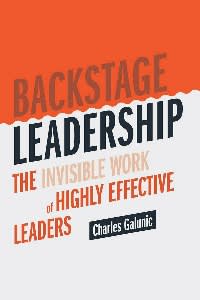
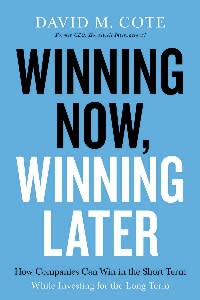
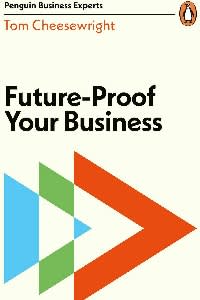
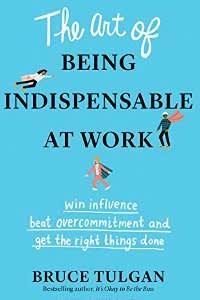
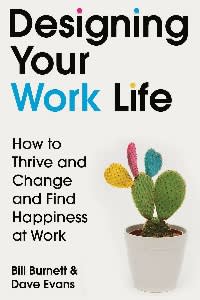
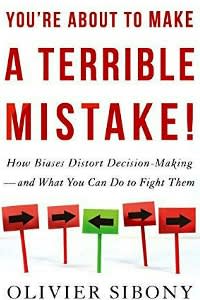
More Stories
The Ministry of Finance for the first time paid income on Eurobonds in rubles
Russia to make dollar bond payments in roubles after US blockade
Russia to make dollar bond payments in roubles after US blockade